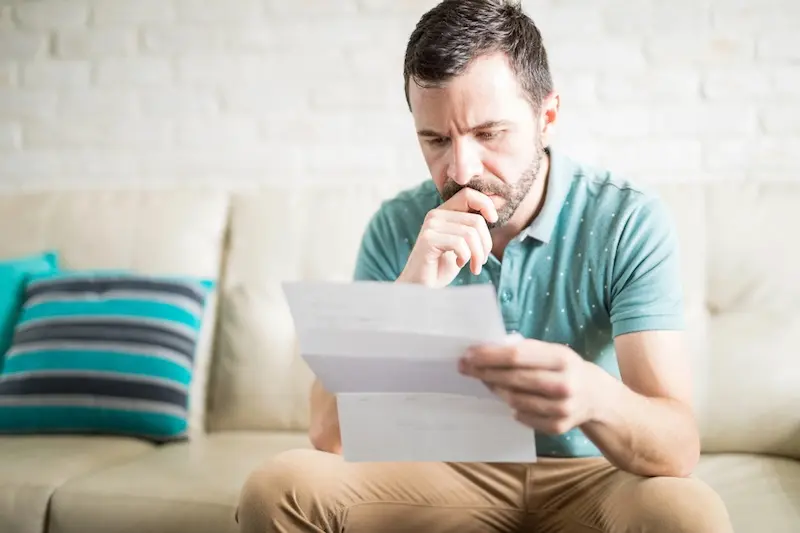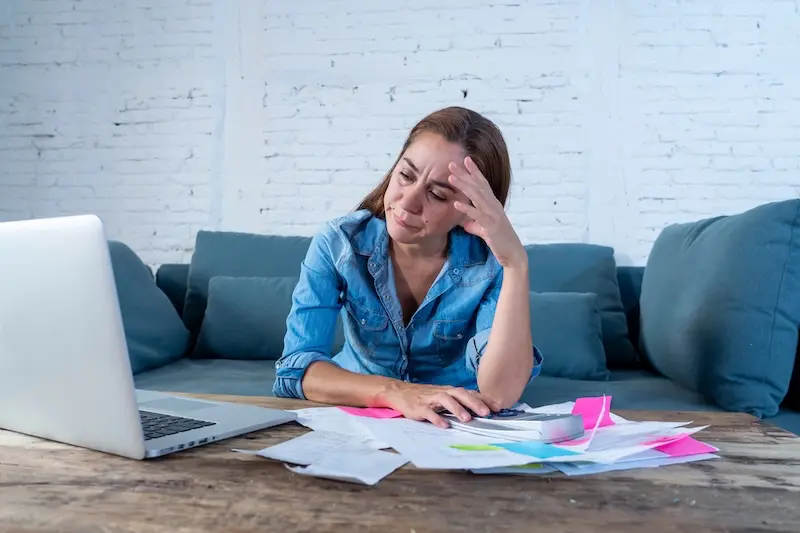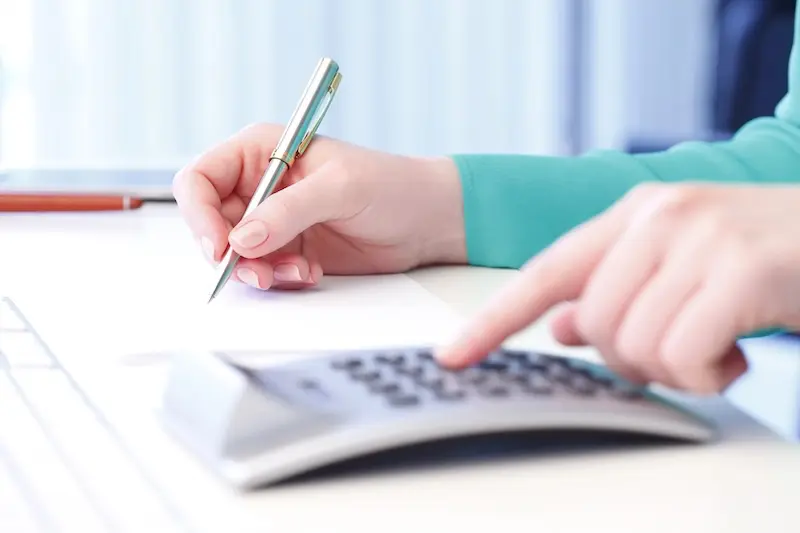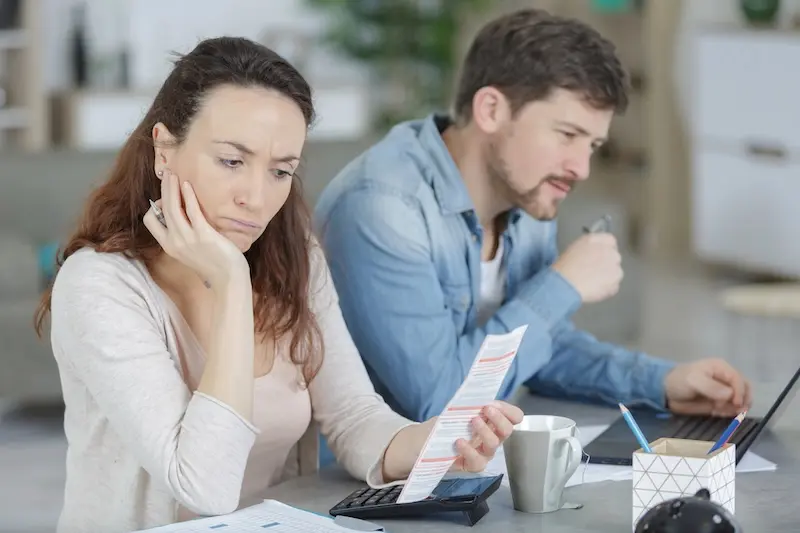With the cost of living steadily on the rise in recent years, more people are in dire need of help with debt in Ireland. When financial pressure builds and the bills keep piling up, it can feel like there’s no way out. But if you’re struggling to keep up with repayments or simply can’t pay your bills, you’re not alone.
Many people across the country face debt-related challenges, and while this fact alone won’t alleviate your stress, there is help with debt in Ireland; you just need to know where to look and who to speak to.
Whether you’re falling behind on credit cards, utility bills, or a mortgage, there are structured pathways to regain control. In this article, we share advice to guide you in the right direction so you can get the support you need.
What should I do if I can’t pay my bills?
The first and most vital step is not to ignore the problem. Avoidance only compounds the stress. Consider these steps:
- Listing out every bill and debt you owe, no matter how small
- Prioritising essentials like rent, mortgage, energy and food
- Preparing a realistic monthly budget
- Getting a full picture of your income and outgoings
If the numbers don’t add up and you’re in the red each month, it’s time to seek advice. Also, keeping the communication channels open goes a long way in maintaining a good relationship with lenders or utility companies. Whether you’ve missed a mortgage repayment or are struggling to pay your electricity bill, reaching out as soon as possible will benefit you in the long run.
I’m behind on credit card payments
Falling behind on credit cards is one of the most common debt concerns. It’s easy to fall into the trap of simply paying the minimum payment month after month. However, as credit card interest rates are often high, doing it this way means that whatever you’ve paid back gets eaten up by the interest accrued. Moreover, missed payments can quickly snowball.
Here’s what to do if you are struggling to pay your credit card bill:
- Contact your lender and explain your situation
- Request a payment plan or temporary freeze on interest
- Avoid using one card to pay off another
- Seek guidance from a Personal Insolvency Practitioner (PIP) if the debt is part of a wider issue

How to deal with creditors calling
Are you dreading checking your postbox or answering phone calls from your creditors? There’s no doubt that frequent correspondence from creditors adds more distress to an already upsetting situation. But know this: you do have rights.
Here are some points to remember:
- Creditors must treat you fairly and respectfully
- Keep a record of all communication
- Don’t feel pressured into agreeing to repayments you can’t afford
- Let them know you are seeking debt advice
In such situations, having a PIP on your side can offer great support. They can handle these conversations on your behalf and negotiate more manageable terms.
Can I freeze interest on my debt?
In some cases, yes. Banks, credit unions or other lenders may agree to freeze interest temporarily if you are experiencing genuine financial hardship. While this will offer you breathing space, there are some requirements such as:
- Full disclosure of your financial situation
- A proposal of how you intend to repay the debt
- Engagement with a recognised debt adviser
Formal arrangements such as a Debt Settlement Arrangement (DSA) or Personal Insolvency Arrangement (PIA) may include interest freezes as part of the legal process.
Debt consolidation vs debt settlement
While debt consolidation and debt settlement may sound similar, they are two very different approaches to dealing with debt. The right one for you depends on your circumstances:
- Debt consolidation means combining multiple debts into a single loan with one monthly repayment. This may reduce your interest rate, but it won’t reduce the total debt.
- Debt settlement means negotiating with creditors to reduce the total amount owed. This is typically done through formal arrangements like the DSA or PIA we mentioned previously.
Not sure which is the best course of action for you? This is where you need the expertise of a Personal Insolvency Practitioner (PIP) who can assess your situation and explain the pros and cons of each.
Is there free help with debt in Ireland?
Yes. In Ireland, several organisations offer free and confidential debt advice:
- MABS (Money Advice and Budgeting Service): A government-funded service offering budgeting support and creditor negotiations.
- Abhaile Scheme: Free legal and financial advice for people at risk of losing their home due to mortgage arrears.
- The Insolvency Service of Ireland (ISI): This is an independent statutory body that offers information and oversight of personal insolvency solutions, often accessed through a licensed PIP.

Can I get a mortgage if I have debt?
Yes, you can. Having debt doesn’t automatically disqualify you from getting a mortgage. However, it can impact how a lender views your application. When assessing your eligibility, mortgage providers will look closely at:
- Your debt-to-income ratio – how much of your income is already committed to repaying debt
- Your credit history – including any missed payments, defaults, or arrears
- Your repayment behaviour – whether you’ve been consistent and reliable in managing your debts
If you’re currently dealing with serious debt issues, it may be harder to secure a mortgage right now. But that doesn’t mean it’s off the table forever. Taking steps to address your debt, such as entering a structured repayment plan or working with a Personal Insolvency Practitioner (PIP), can help rebuild your financial profile and put you in a much stronger position down the line.
I’m scared to open my post
The feeling of dread that many people have when they see those red lettered envelopes arriving at the door is more common than you think. Oftentimes, those facing financial hardship avoid letters because they fear what’s inside. Even the wording in some of these letters can be quite threatening.
- Remember: not opening a letter doesn’t make the problem disappear
- Often, it’s better news than you think – an offer of a payment plan or a pause in proceedings
- If it’s overwhelming, bring your unopened letters to a PIP who will be happy to go through them with you
I feel ashamed of my debt
Shame is one of the most powerful barriers to seeking help. But debt is not a moral failing. Life happens; many circumstances can lead to financial woes – illness, job loss, family changes. What matters is how you respond now.
Just to ease your mind, according to research by the aforementioned MABS, the sense of shame associated with the level of debt has fallen by 7% in recent years. Particularly in the wake of the global pandemic and effects of a national lockdown, there was a general feeling amongst those surveyed that everyone had been impacted financially in some way. And as living costs have risen and more people struggle to make ends meet, it’s safe to assume that there is less of a stigma attached to financial difficulty.
So, if there’s one takeaway from this – seek help from a licensed PIP, who will be able to offer you confidential support and reassure you that this is nothing to be ashamed about.

How to begin tackling your debt
Taking control of your finances starts with small, intentional steps:
- Make a full list of your debts and prioritise essentials
- Create a realistic monthly budget
- Contact your creditors to explain your circumstances
- Reach out for help from a trusted PIP
Depending on your situation, you might qualify for:
- Debt Settlement Arrangement (DSA) – for unsecured debt like credit cards and loans
- Personal Insolvency Arrangement (PIA) – for secured and unsecured debts
- Bankruptcy – a last resort, but sometimes the cleanest path forward
Looking for help with debt in Ireland? Here’s what to do next
If your debt is still manageable, take action now before it becomes a bigger problem. Here’s how to get the ball rolling:
- Review your spending
- Tighten your budget
- Make early contact with lenders
- Seek free advice if you need direction
If your financial problems feel unmanageable, don’t wait for the next bill or letter to push you further into distress. Speak with a licensed PIP to get expert, confidential guidance tailored to your situation.
Additional supports that could help with debt in Ireland
Energy bills in Ireland have increased drastically in the last few years alone. Looking at just electricity, for example, recent figures from Eurostat show prices of electricity here are the third highest across the European Union. It’s safe to say that many Irish households are finding it difficult to budget for energy bills. However, there is support out there in the form of grants, payment plans and emergency assistance available through providers and state schemes. You might also be eligible for:
- Additional Needs Payments, which are available to you if you have essential expenses such as utility bills that you cannot pay from your weekly income. You can apply for this through your local Intreo office.
- Household Benefits Package or Fuel Allowance for those on lower incomes
- Payment breaks or bill deferrals from utility providers
One final point to note: The Central Bank’s Consumer Protection Code ensures that lenders must deal with borrowers in arrears sympathetically and positively. If you believe you’ve been treated unfairly, you can raise a complaint or seek support from the Financial Services and Pensions Ombudsman.

Need help with debt in Ireland today? Contact Alan McGee & Co today
At Alan McGee & Co, we understand that dealing with debt is about more than numbers; it’s about people, families, and peace of mind. With over 600 Personal Insolvency arrangements completed and a reputation for compassionate, expert support, we’re here to help you move forward. And you can rest assured you’ll receive guidance with no judgement and no complicated jargon; everything will be explained to you in simple, plain English.
For a fast, friendly response, contact us today. You’ll receive a quick callback from someone who knows the system and genuinely wants to help.
There is help with debt in Ireland. You don’t have to face it alone.

